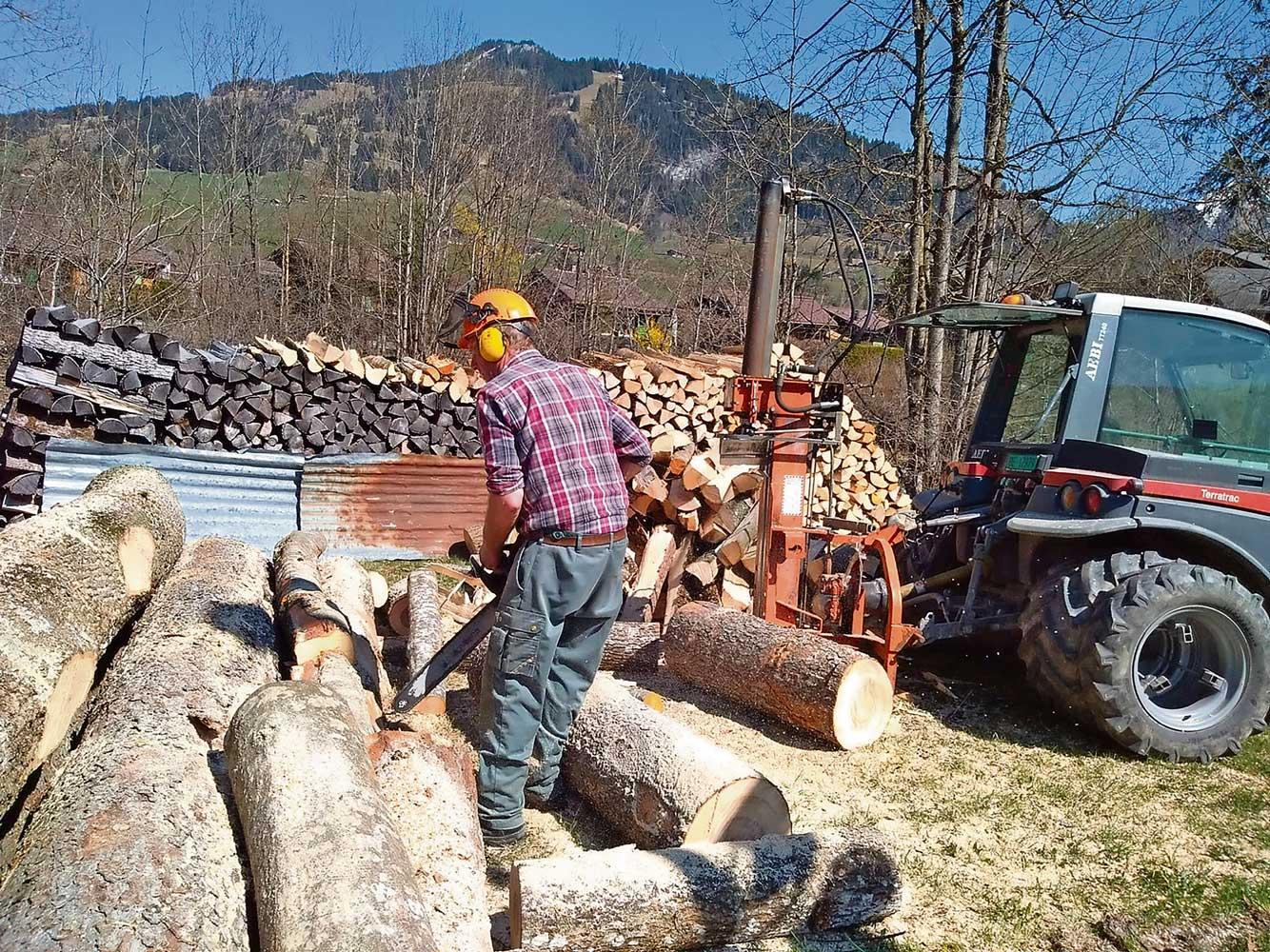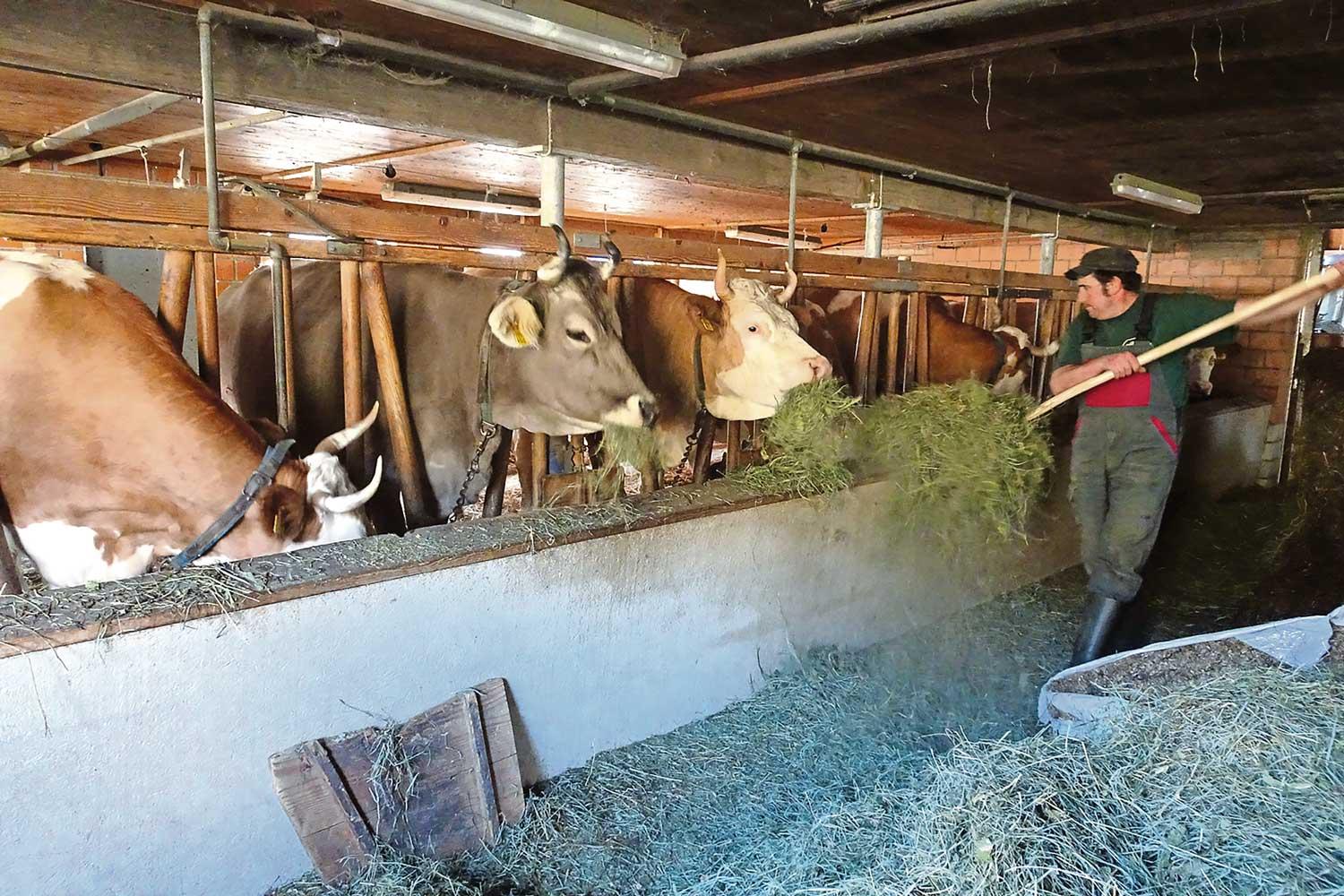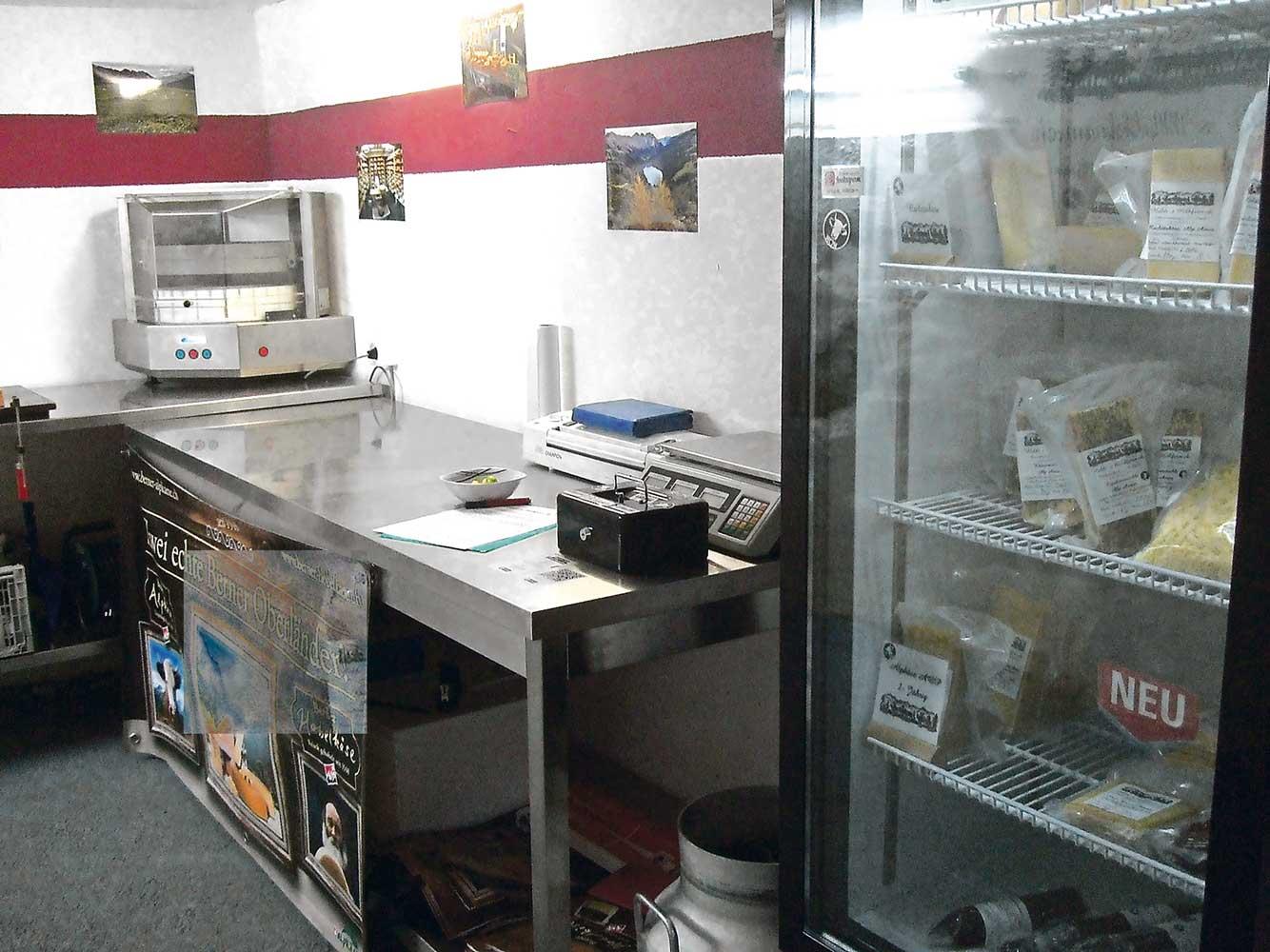Farming in the corona crisis
17.04.2020 Business"Sometimes I feel like I'm in another film," says Willi Bach from Rübeldorf. Of course they stopped their stable visits immediately. "But the passersby, whom I have often seen walking by, suddenly have time to pause and you can have good conversations with them." In general, the guests are grateful and enjoy the beautiful surroundings.
Spring work as usual
All the farmers interviewed emphasise that they can carry out their work without any restrictions. After all, they are often alone in the field and thus meet the requirements. It is rather the additional earnings (for example in nursing or on a construction site) that expose farmers to increased risk. At the milk collection points it is usually no problem to keep a distance, as the farmers choose their ideal delivery moment anyway to avoid waiting times.
Urs von Siebenthal from Feutersoey is optimistic by nature. He is aware that other industries and families are more affected than those who work in agriculture. At the moment there are no restrictions for farmers, he says, and milk sales are not a problem. One uncertainty remains, thoug, namely in the meat industry. This could cause problems for individual farms.
Farmers are advised not to panic sell their cattle. "Farmers who invest the money of the whole winter in feeders* and cannot go to the slaughter cattle markets because they are forbidden." But cattle farmers who only bet on one card are in the decline and the crisis could also be an opportunity for Swiss agriculture if people more frequently opt for regional products.
Livestock trade collapses
A less optimistic tone naturally comes from a cattle dealer. "The trade is down," muses Simon Fuhrer from Feutersoey. "The market has practically come to a halt, so the farmer cannot, as before, drop an unsatisfactory cow and replace it with another." This used to stimulate the trade.
There is often criticism that meat is still being imported. "The import quotas that meat traders have negotiated at the slaughter cattle markets cannot be stopped overnight", says Fuhrer. "These are deals that someone had expected." The fact that feeders cannot be sold in time is his great concern. If these animals become too old and too heavy, it is a matter of cash for the farmer, and the places in the stables remain occupied.
"The consequence is that the trade with young male calves has collapsed." According to information from Rolf von Siebenthal, Lauenen, the Buure Metzg, in cooperation with the Agricultural Association and the IG Hotels, will launch the product "Saanenland veal" in mid-May. This must meet certain requirements and thus provides added value for all parties involved. The planned public event cannot be held, but the offer will nevertheless be launched in May. For the first time, use was made of the Proviande storage offer to avoid having to decline registered animals.
The private direct marketing of individual animals remains on a good level. This is only possible as long as the small slaughterhouses are well maintained and there are also local families who are willing to consume local products, either from private sellers or from local shops. "Sales in my farm shop has increased greatly since the corona crisis," says Silvan Haldi happily. Others share this experience. "The customers appreciate knowing where the products come from." This naturally motivates them to think about how to expand the range of products.
More Swiss Alpine staff
Employees are needed in particular for the summer months spent on the alps. Surprisingly, many farmers could hire Swiss staff for this summer, which used to be quite difficult in previous years. Farmers dependent on help from abroad have already received refusals. Several German Waldorf pupils will not be able to gain any experience in the Saanenland this year, their school trips and internships were cancelled early on. There are still jobs and job seekers on the online platform z'Alp. According to information from Jörg Trachsel, Lauenen, the entry of Europeans should not be a problem if the permit papers are correct. Recently, farmers are again being asked about work, something that has almost never happened since the 1990s.
Support networks
So far it is not known that a farmer has been absent for a longer period of time due to illness. If this should happen, family support or neighbourhood help usually works for the time being. A farm assistant service exists for cases where no help is at hand. Experienced, mostly young farmers are registered with the service and are deployed if necessary.
The farming community is grateful to all consumers who think and act regionally, not only during the crisis. The widespread wish, not only of farmers in the Saanenland, is that the esteem in which the local product is currently held will outlive the corona crisis and that Swiss agriculture can get away from the image of air and water polluters.
Based on AvS/Vreni Müllener






